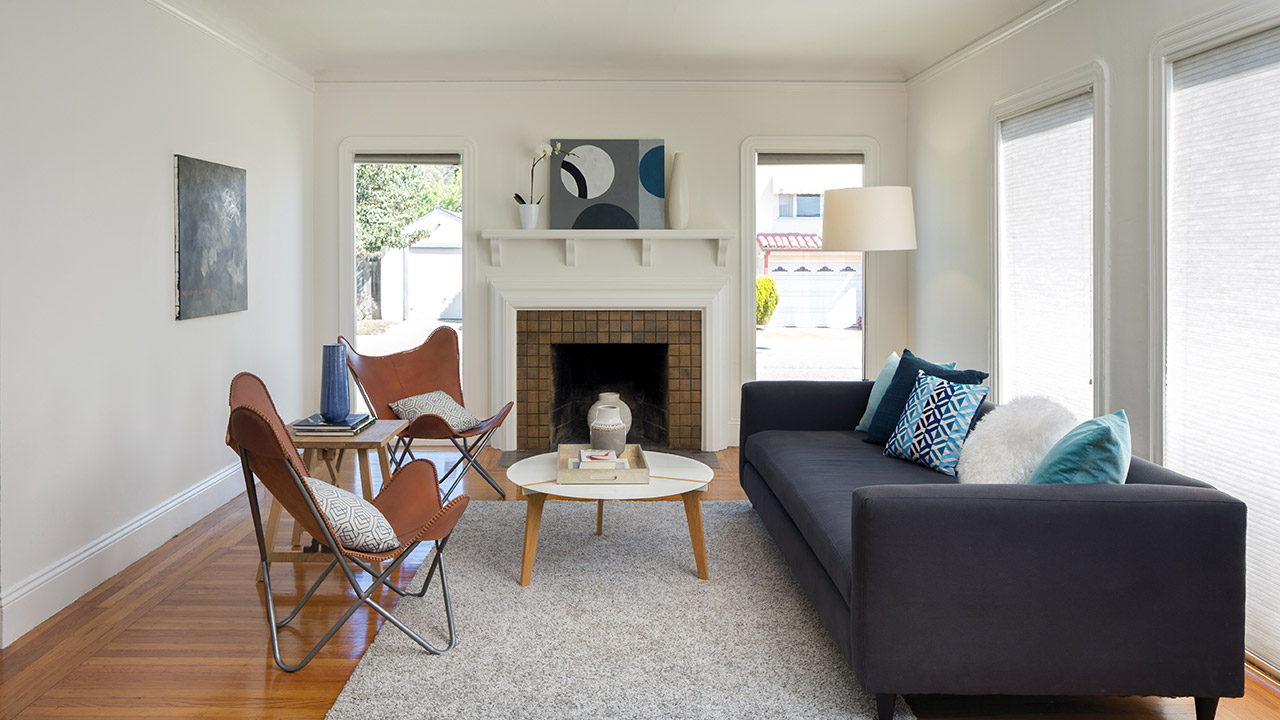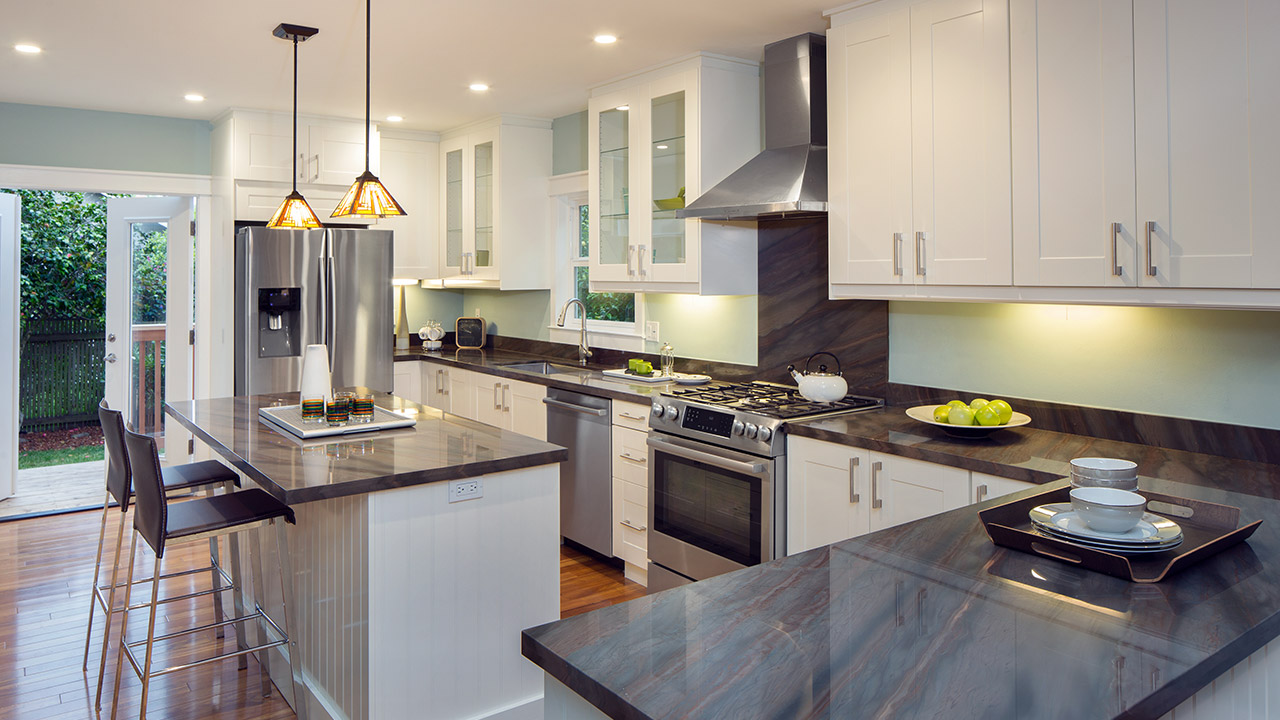7 Things First-Time Sellers Need to Know Before Listing
People always learn a thing or two after having been through the process of selling a home, and those who’ve been through this rodeo once or twice probably admit that they would have done something a little different the first time around.
For those who are selling their homes for the first time, it can seem like a daunting task. From getting the place ready for showings, to finding the right buyer, to negotiating a good deal, the whole process is more involved than you might think. But with the help of an experienced real estate agent – and a few pointers – selling your home shouldn’t have to be a headache.
Here are a few things first-timers should know about selling.
1. Stage Your Home Before Listing

Think about how it would be as a buyer to walk into a home for sale, only to be greeted with a yard full of weeds and dead bushes, shoes piled at the front door, dirty dishes in the sink, oddball collectibles scattered about, and wacky wall colors that are enough to blind someone. You’d likely be at least a little put off. Well, buyers who are making a trip to see your home will feel the same way if it’s not properly presented.
If you don’t know where to start when it comes to staging your home, hire a pro to tackle it for you. Professional stagers will not just help you cut the clutter, they’ll make suggestions about how to decorate and arrange the furniture to appeal to buyers looking in your specific neighborhood. And once your home is listed on the market, it’s got to be in pristine condition at all times.
Many sellers dismiss the idea of hiring a stager for the simple fact that they don’t want to spend any more money than necessary. But it’s been proven that homes that are staged typically sell for more money compared to those that aren’t. So that extra few hundred bucks spent on a home stager can actually get you a few thousand more on the sale of your home.
2. Price Your House Right
Everyone wants to see the big numbers come in, and many over-price their properties in an effort to bring in the Benjamins. But pricing a home way over what it’s actually worth is a big mistake. The biggest amount of interest and number of showings happens during the few couple of weeks after a home is put up on the market. The second a new listing pops up, buyers are notified. But if your home is listed out of their price bracket, they’ll just move on and keep looking.
It’s crucial to have a realistic expectation about what your home is actually worth according to current market conditions. Knowing what similar homes in the neighborhood recently sold for is a great indication of what you should be listing your home at.
If the 3-bedroom bungalow with a finished basement next door sold last month for $300,000, there’s little basis for pricing your near-exact home for $375,000. You’ll be losing out on a lot of potential buyers by pricing our home way out of ts proper price range. And the more people skip over your listing, the longer – and staler – the listing will get without a bite.
3. Consider Throwing in Some Extras to Sweeten the Deal

Before you list your home, decide what you absolutely cannot part with, and things that you might want to keep on the back burner come negotiation time. For instance, it’s pretty common for buyers to ask sellers to throw in their kitchen appliances or washer and dryer in order to seal the deal. Realistically, taking these large items with you would just be a pain, so throwing in these extras can be a great negotiating tool and selling point.
4. Make Sure the Buyer is Financially Qualified
You want to make sure that the buyer who offers to purchase your home is financially capable of getting approved for financing. A buyer may agree on the price and closing date, but what happens when the deal is sealed, and the buyer can’t come up with a mortgage?
Sure, you’ll likely be able to pocket their deposit, but you’ll wind up back in square one with the whole selling process, which can cost you more money in marketing and carrying costs. Be sure to ask for a pre-approval letter from the buyer. While this doesn’t guarantee that they’ll be approved for a mortgage to buy your home, it still puts them that much closer to verifying their ability to afford your home so the deal can close with little hassle.
5. Be Flexible With Your Showings

If you want to speed up the selling process, do yourself – and all the buyers out there – a favor and minimize the restrictions about when your home can be shown. Limiting showings only to a couple of hours on weeknights will make it tough for many buyers who might only be able to make it on weekends or weekday mornings.
Not only that, but many times buyers might only give you a couple of hours notice for showings. Make your house available for all daylight hours and within short notice, if possible. Otherwise, prospective buyers will likely find another property and forget all about yours.
6. Hire an Agent
Forget about going the DIY route when it comes to selling your house. Unless you’re a full-time professional real estate agent yourself, you’d be well advised to hire an experienced agent who will work diligently to market your property, schedule showings, negotiate deals, and draft up air-tight contracts. Not only will they save you the hassle of doing all this labor-intensive work yourself, they’ll likely be able to bring more money to the table come negotiating time, which will offset any fees you might have to pay.
7. Expect the Unexpected

Real estate deals are notorious for coming with snags along the way. Maybe the home inspection revealed an issue or two that the buyers are raising their eyebrows about, or perhaps the buyers are taking longer to secure financing than they had anticipated. Whatever the case may be, expect to hit a bump or two along the way.
Keep these things in mind when before you put your home up for sale. You’ll be glad you did.